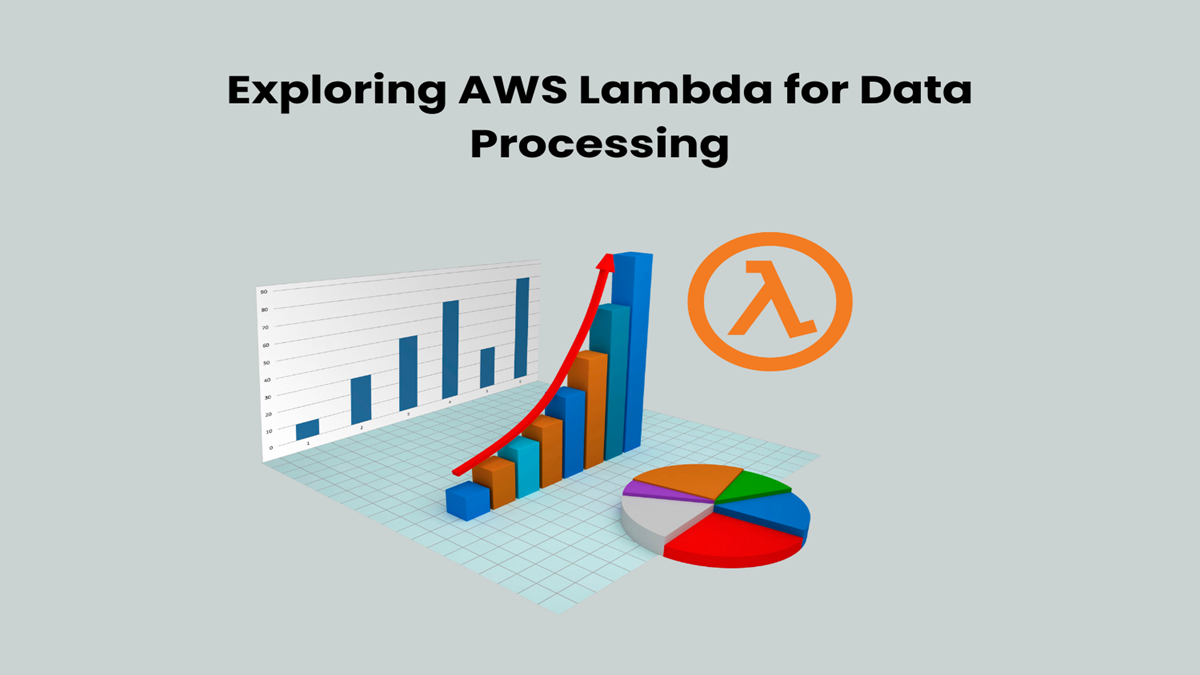
AWS Lambda has emerged as a powerful serverless computing service offered by Amazon Web Services (AWS), enabling developers to run code without provisioning or managing servers. With its ability to automatically scale based on incoming traffic and execute code in response to events, AWS Lambda has become an integral part of modern data processing pipelines. This blog explores the role of AWS Lambda in data processing, highlighting its key features and benefits, and its relevance for individuals pursuing a AWS Certification with a focus on AWS Lambda.
Table of Contents
- AWS Lambda Overview
- AWS Lambda for Data Processing
- Key Use Cases of AWS Lambda in Data Processing
- Relevance for AWS Certification
- Conclusion
AWS Lambda Overview
With AWS Lambda, programmers may execute code in response to events generated by custom events or AWS services. Because of its event-driven design, which allows for a smooth interface with various AWS services, it is the perfect choice for developing data processing pipelines that respond to system events or changes.
Developers can concentrate on creating code instead of worrying about scalability, server administration, or infrastructure upkeep using AWS Lambda, which speeds up the development and deployment processes.
AWS Lambda for Data Processing
Regarding data processing, AWS Lambda provides several benefits. Because it is serverless, there is no need to supply or maintain servers, which lowers expenses and overhead. Because of this, processing massive amounts of data using AWS Lambda is a desirable alternative to maintaining complicated infrastructure.
Furthermore, real-time data processing is made possible via AWS Lambda’s event-driven paradigm, which allows developers to create scalable and responsive data pipelines.
Key Use Cases of AWS Lambda in Data Processing
- Real-time Data Processing: Data streams from Amazon Kinesis or Amazon DynamoDB streams may be processed using AWS Lambda. This enables handling incoming data quickly, allowing real-time alerting, monitoring, and analytics.
- Batch Processing: Data transformation and loading from sources like Amazon S3 or Amazon Redshift are examples of batch processing jobs that may be performed using AWS Lambda. Using AWS Lambda’s scalability, developers may effectively and economically handle substantial data volumes.
- ETL (Extract, Transform, Load) Pipelines: Data is taken from a source, converted by business logic, and loaded into a target destination. AWS Lambda is a good choice for developing ETL pipelines. This allows data from many sources to seamlessly integrate into a single data store or warehouse.
- Data Lake Processing: AWS Lambda may be helpful in a data lake architecture for organising and processing data kept in a centralised repository like Amazon S3. Organisations may get important insights from their data lake without requiring complicated infrastructure by using AWS Lambda to analyse data on demand.
Relevance for AWS Certification
It is crucial for anybody seeking an AWS Certification to comprehend the features and best practices of AWS Lambda, especially for those who are concentrating on data processing and AWS Lambda.
Understanding AWS Lambda’s functionality, usage cases, and interface with other AWS services is highly regarded since it is a crucial part of AWS’s serverless solutions.
Gaining expertise with AWS Lambda allows people to show that they can develop scalable and effective data processing solutions on AWS, which is helpful for prospects for career advancement in the cloud computing space.
Conclusion
Developers may create scalable and affordable data pipelines with the help of AWS Lambda, which provides a robust and adaptable platform for processing data.
AWS Lambda is a great option for current data processing requirements because of its serverless architecture and event-driven design, which enable it to handle real-time data streams, batch processing jobs, and ETL pipeline construction.
Understanding AWS Lambda’s features and best practices is crucial for anybody aiming to get an AWS Certification focusing on data processing and AWS Lambda. This will show the candidate is skilled in developing scalable and effective AWS data processing solutions.
